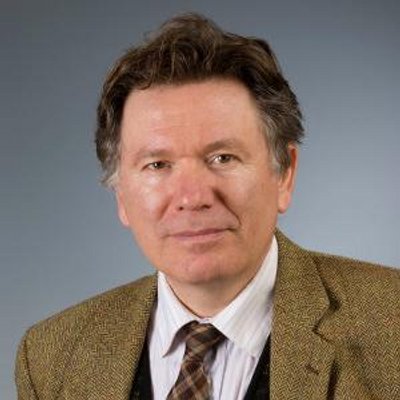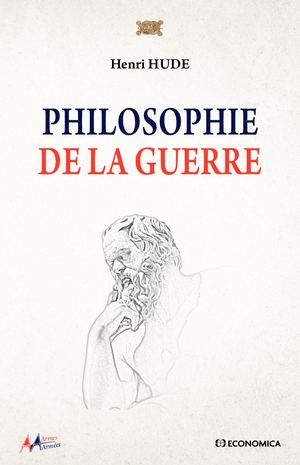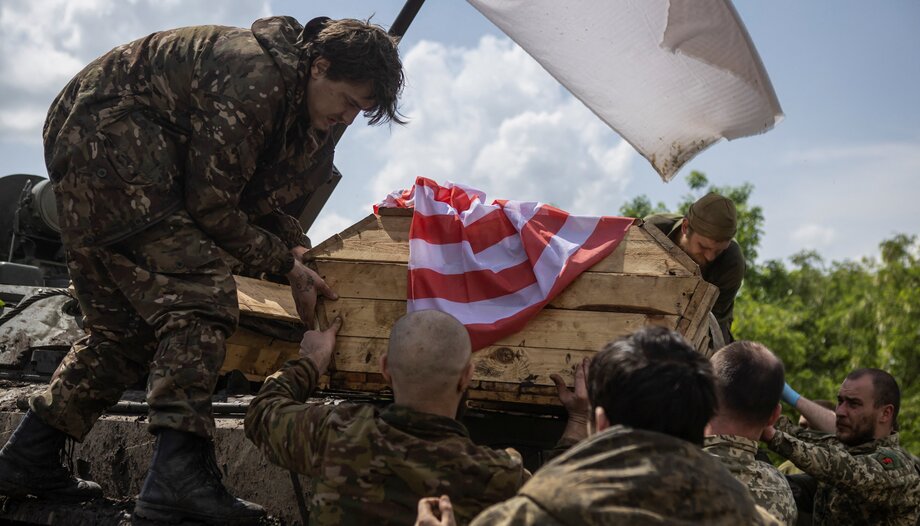Former student of the prestigious École Normale Supérieure, Henri Hude is a professor of philosophy at the military school for officers of the French army (Saint-Cyr). His latest book, "Philosophy of War", resonates for religions as a call for a philosophical and spiritual leap to build the peace of tomorrow's world.

Faced with the risk of total war and the imperialism of one power, can we summarize your approach outlined in your latest book "Philosophy of War" by saying that religions are the solution and not the problem for the establishment of universal peace?
The total war implies the use of all available means. Today, it would lead to the destruction of mankind, due to technical progress. The terrifying possibility of such destruction gives rise to the project of abolishing war as a condition for the survival of mankind. But war is a duel between several powers. Therefore, to suppress it radically, it is necessary to institute a single world power, a universal Leviathan, endowed with unlimited power.
Philosophy of war

But plurality can always be reborn: by secession, revolution, mafias, terrorism, etc. Therefore, the security of the world requires more broadly the destruction of all power apart from the Leviathan. It is necessary not only to put an end to the plurality of political and social powers, but also to destroy all other powers: spiritual, intellectual or moral. We are beyond a mere project of universal imperialism. It is about supermen dominating subhumans. This Orwellian-Nazi project is so monstrous that it has a paradoxical consequence. The universal Leviathan becomes the common enemy number 1 of all nations, religions and wisdoms. Previously, they were often at war or in tension. Thanks to the Leviathan, here they are allies, friends perhaps. Leviathan is not fit to guarantee peace, but its monstrosity, which is now a permanent possibility, guarantees the lasting alliance of former enemies. Religions and wisdom are the main guarantee of freedom and peace. It is another world.
The diplomacy of the Holy See seeks to establish a solid dialogue with Islam in order to build "bridges". In recent history, Cardinal Jean-Louis Tauran has worked in this direction by visiting Saudi Arabia, which was the first time for a Holy See diplomat of such rank. In 2019, the emblematic meeting between Pope Francis and Ahmed Al-Tayeb, the imam of the Al-Azhar Mosque, the most important Sunni institution in the Middle East, also marked a further step in this rapprochement (not to mention the successive trip to Bahrain). So, is this diplomatic policy going in the right direction in your opinion?
I think so, because it is part of this logic of peace for an anti-Leviathan alliance. Who is the Leviathan for? Certainly, to become Leviathan is always the temptation of every power in this world. The Leviathan is, therefore, first and foremost a fundamental concept of political science. But it finds a terrible application in the political and cultural choices of Western, especially Anglo-Saxon, elites. The "woke" ideology is a machine for making subhumans. Democracy is turning into plutocracy, freedom of the press into propaganda, the economy into a casino, the liberal state into a police surveillance state, etc. Such imperialism is both abominable and dysfunctional. It has no chance of success, except in the oldest and most controlled Western countries, and even then... The Pope is right to prepare for the future.
As for Muslims in particular, the strategy of the Leviathan is to spread everywhere the most violent and sectarian, who are its useful idiots, or its paid agents, to divide and rule. Muslim religious leaders, who are as smart as the Pope, know this very well. Political leaders know it too. See how they take advantage of NATO's failures in Ukraine to get rid of the Leviathan. It is not at all about creating a single syncretic religion, because low-end relativism is the first principle of the culture of subhumans that the Leviathan wants to inject in everyone to dominate everything dictatorially. It is a matter of finding a modus vivendi. This gives rise to friendship and friendly conversation between people sincerely seeking God, not to pseudo "interreligious dialogue" between clerics or modernist secular intellectuals, relativistic and blamed to the bone by the Leviathan.
In the conflict between Russia and Ukraine, would the ties between the Patriarch of Moscow and the power or similar ties in Ukraine and the internal religions make it almost impossible to bring religions together to build peace?
When you want to criticize others, you have to start by putting your own house in order. One can ask oneself, for example, if we French Catholics do not have ambiguous relations with political power. Faced with "woke" dogmatism, the canonization of the culture of death, generalized authoritarianism, servility to the Leviathan, the march towards world war, we remain as if knocked out. Manipulated and/or careerist, we sometimes blame ourselves by apologizing for existing in the public sphere.
If the "woke" culture were universally imposed, it would be the loss of all souls and the end of all decent civilization. Resistance to the imposition of the "woke" culture can be a cause of just war. This is what the whole world thinks, except the West, and it is for this reason that the soft power of the West is evaporating at great speed. This is without prejudice to the justice due to Ukraine and charity among Catholics.
Is violence inherent in Islam?
I want to ask you: is cowardice inherent in Christianity? Christ said that He did not come to bring peace on earth, but division. He also says that He vomits out the lukewarm. In many Sunday sermons, there would be nothing to change if the word "God" were replaced with the word "fluff".
In his book "Ecumenical Jihad," Peter Kreeft (pp.41-42) writes: "It took a Muslim student in my class at Boston College to rebuke Catholics for removing their crucifixes." "We don't have pictures of this man, as you do," the student said, "but, if we did, we would never remove them, even if someone tried to force us to do so. We would revere this man, and die for his honor. But you are so ashamed of him that you remove him from your walls. You are more afraid of what your enemies may think if you keep your crucifixes, than what He may think if you take them down. So I think we are better Christians than you are."
To be ashamed of Christ we call it respect for freedom. We believe that we have opened ourselves to the world, when we have abdicated all evangelical freedom. We think we are superior to our elders, when we are only participating in this lamentable evolution, which Solzhenitsyn called the "decline of courage". To be a Christian, first of all you must not be a subhuman. And in order not to be one, you have to be able to resist the Leviathan. If necessary, by shedding your own blood. Bismarck put thirty bishops in prison and in the end had to abandon the Kulturkampf.
Ten years ago, Pope Francis said, "True Islam and a proper interpretation of the Quran are opposed to all violence." This phrase continues to be debated and divides Islamologists and theologians. What did Francis mean?
I do not know what the Pope was referring to. The expressions "true Islam" and "proper interpretation" raise very difficult problems and, therefore, the phrase can be given very different meanings. For lack of precision, there is no way of knowing. The philosopher Rémi Brague, who knows the subject admirably, has just written a book, entitled "On Islam", in which he displays a truly impressive erudition. He believes that he must interpret the phrase as if the Pope were speaking as a historian of ideas. He shows that, if that were the case, this statement would be wrong. But I believe that the Pope is not speaking as a historian of ideas. (In any case, these are topics to which the
Petrine charism of infallibility does not apply.)
Should we understand this sentence of the Pope as a political sentence that would confront the Muslim authorities with their contradiction and their responsibility by inviting them to join him in building a world of peace?
The Pope is neither Machiavellian nor ignorant. In truth, we must distinguish between force and violence. Violence is the illegitimate use of force. All great religions and wisdoms oppose all violence, but none oppose any use of force. All societies have the right to self-defense. If any use of armed force were morally forbidden for any society in all circumstances, it would be morally obligatory to suffer any aggression, practiced by anyone, for any purpose. In other words, morality would compel us to obey even perverts who would like to destroy all moral principles. Therefore, societies have a right and sometimes a duty of self-defense, armed if necessary. Some abuses understand no language except force. So you draw a red line in front of them on the ground. "This line means that I would rather risk my life and suffer than suffer what you want to impose on me. So if you transgress this line, you will have to risk your life and suffer." If you are incapable of this behavior, you are good for slavery.








